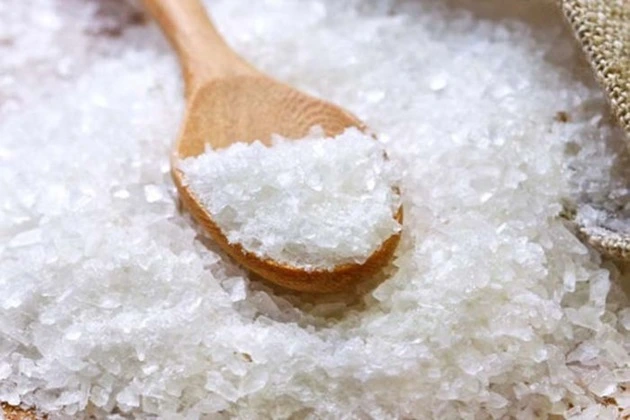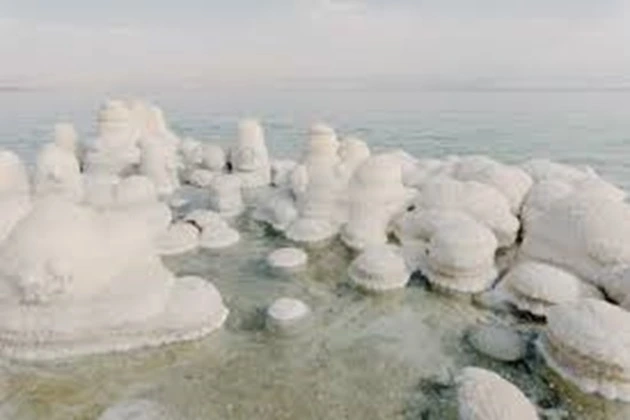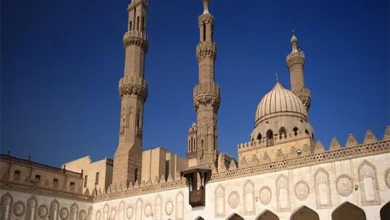How salt changed history: Kitchen seasoning’s role in civilization

It’s hard to believe that such a simple and, at first glance, insignificant seasoning as salt, in addition to its culinary role, has shaped entire civilizations. It has always played an important role not only in economics but also in religious beliefs. For a long time, in almost all cultures, she embodied spiritual purity and could ward off evil spirits. This spice also occupies a very important place in the Bible. What does the metaphor “salt of the earth” mean, how can it help modern society, and what is the role of salt in various periods of human history — further in the review?
How salt got to Europe

One of the greatest travelers in history was the famous Marco Polo. When he was 15, the young researcher followed in his father’s footsteps and traveled along the Silk Road to distant and mysterious China. There, he was received at the royal court of the Great Khan. The traveler was captivated by the East. Marco Polo was fascinated by its great secrets, endless wisdom stretching back centuries, and mysterious treasures. He received the emissary position from the ruler and traveled extensively throughout the empire.
At the end of the 13th century, the explorer arrived in his native Venice with a treasure trove of wonderful oriental curiosities that Europeans had never seen before. Visit. A F R I N I K .C O M . For the full article. Among these treasures were paper money, gunpowder, silk paper, porcelain dishes, and precious stones of unprecedented beauty. Few people know that one of the most valuable things that Marco Polo brought from China was salt, which is common to many today! It was this valuable commodity that soon made the Venetians fabulously wealthy.
Venice was then the main link between North Africa and the Mediterranean. Having gained the status of a monopolist in the salt market, this city has achieved unprecedented economic prosperity.
The world history of salt

The Dead Sea is the saltiest body of water in the world. In biblical times, the region’s main salt source was the area. This mineral has been an important and integral part of almost every culture in world history. Ancient historical texts say that salt was a valuable commodity. There were even specially paved routes for salt delivery to other regions. This spice was an important currency called white gold.
Salt has created entire civilizations. In ancient Egypt, it was one of the most important commodities, as salt was one of the main ingredients needed for mummification. Salt was paid for enslaved people who were brought to Athens for sale.
Salt was also a currency during the Roman Empire. Soldiers were paid with salt. The English word “salary” comes from the word salt. The word “salad” also has its roots in the same place.
France established a new salt monopoly in the 17th century. Only representatives of the highest nobility had the right to sell this mineral, which soon led to an acute salt shortage. They even imposed a special tax on it. The shortage was constantly growing, and with it the discontent of the impoverished people. As a result, all this led to a social explosion in society, the French Revolution.
Interestingly, the richest salt mines in Russia have always been the most popular place of exile. The local salt mines supplied salt to the entire vast empire. They functioned until 1989. At various times, up to 1.2 million prisoners worked for them.
At the same time, in a country very far from Russia, a certain Mahatma Gandhi walked more than three hundred kilometers to collect tax-free salt for the poor people of India. This event was called the Salt March. It protested against British policy, which forbade residents to extract salt. They had to buy it from their colonialists at fabulously high prices. Even today in India, salt symbolizes a priceless gift, symbolizing luck and freedom.
Salt was probably most important in Africa, where endless camel caravans loaded with salt crossed the vast Sahara Desert. One European traveler described a strange village where all the houses were built of salt blocks and covered with camel skins. There’s no single tree for miles around—just sand and a salt mine. Salt was mined there. She was lying there in layers. The weight of one block reached almost 100 kilograms. Two blocks were loaded onto each camel, and the caravan numbered five hundred animals to two thousand. Salt was exchanged for gold, ivory, and furs.
The supply of salt has never satisfied the high demand for it. Transportation difficulties increased its price. Often, in the literal sense of the word, she was worth her weight in gold.
Salt has always influenced the course of human civilization. When it was used to pickle fish, the world changed forever. The opportunity to save the catch to sell it far from the fishing place and even the port has changed the market. In addition, it was possible to stay longer on sea and land voyages — salt made it possible to store provisions for a long time. This helped Europeans actively explore the world in the 15th century, which eventually led to the “discovery” of America and, a little later, New Zealand and Australia.
Salt also played a major role in the American War of Independence against Britain. When the British imposed a ban on the sale of salt to the rebels, it had the opposite effect: local producers became real heroes of the War of Independence.
Salt and Religion

Salt has been an important part of religious rituals in many cultures since ancient times. In ancient Greece, salt was considered a sacred symbol of purity. Its solution was sprinkled on all objects during religious ceremonies and sacrifices, and salt was thrown into the fire as an offering to the gods.
Salt also plays an important role in Buddhism. They believe that it scares away evil spirits. In this culture, throwing salt over your shoulder is customary to ward off evil spirits that cling to your back. The leader of Buddhism, the Dalai Lama, is even buried on a salt bed. In the religion of Japan, salt has a similar meaning. For example, even today, before a sumo wrestler’s fight, a handful of salt is thrown into the center of the ring to ward off evil spirits.
Salt occupies a very important place in the scriptures. This is one of the most important parts of worship. Salt was part of the temple offerings. The Old Testament says that every sacrifice and offering must be seasoned with salt. The Lord often tells his prophets about the “covenant of salt” – this was how an important contract was sealed forever in those days. This mineral is mentioned in the Bible more than three dozen times. Salt is used for both healing and purification. To this day, it is customary for Jews to bring bread, salt, and sugar to the house owners at a housewarming party. It symbolizes the wish to never know hunger.
The most famous mention of salt is found in the New Testament. Jesus tells his disciples, “You are the salt of the earth.” But what does it mean? Christ spoke these words after his famous Sermon on the Mount, where the Lord enumerates the beatitudes. These are the most powerful words of blessing ever uttered. They still inspire millions of people around the world today. The Sermon on the Mount is the core of the teachings of Jesus Christ. It contains all the principles of Christian behavior that will help them live in peace with people and God.
After these words, the Lord pronounces the postulate that the apostles are the salt of the earth. This means that they should be a model for everyone. The small amount that will keep the rest of humanity safe for the Kingdom of God. The disciples must “salt” humanity and serve as the seasoning that will protect it from sinful decay, which will lead them straight to hell. Salt is a value. With these words, Jesus shows how valuable the gospel preachers are and how much the world will change if everyone accepts His teachings.
Salt symbolizes love. When people reject God, society slowly collapses — it rots like meat or fish without salt. Everyone knows that God is love, and if the direct symbol of love is salt, everything collapses when this seemingly insignificant seasoning disappears. Today, in different parts of the globe, one can observe how evil and sin are beginning to cause society to rot. Everyone starts hating each other, and wars are going on.
Just as a seasoning like salt cannot be replaced by anything, so God’s love cannot be filled with anything else. Today, a society of overconsumption has been formed. TV screens and other electronic gadgets are actively broadcasting about what to wear, what is better to eat and drink, and what needs to be bought. Increased consumption is positioned as the highest happiness. People change jobs, products, and spouses, hoping to achieve the fictional ideal that advertising and propaganda have imposed on them. But he’s not. There is an emptiness in the soul that needs to be filled, and does not find it…
And here comes the turn of what Jesus told his disciples 2,000 years ago. Christians should be the salt of the earth — good, honest, reliable people. Their way of life should be the salt for all the deprived, giving them hope for a completely different, new, and wonderful life in Christ. After all, salt is both a preservative that protects food from spoilage and a seasoning that decorates and enhances food taste. It kills germs, and it is this quality that believers should have. They, like salt, should contribute to the healing of society. This is what Jesus wanted.




